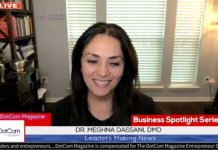Search Engine Marketing (SEM) is a crucial component of digital marketing strategies, allowing businesses to reach their target audience and drive conversions. At its core, SEM is the process of creating and publishing online advertisements that appear on search engine results pages (SERPs) in response to specific keywords or phrases. When a user searches for a particular term, the search engine’s algorithm assesses the relevance and quality of the ads that match the query, displaying them in a specific order to the user.
The primary objective of SEM is to increase the visibility of a brand’s online presence, driving traffic to their website and ultimately generating conversions. This can be achieved through various means, including pay-per-click (PPC) advertising, cost-per-thousand impressions (CPM) advertising, and cost-per-action (CPA) advertising. In PPC campaigns, advertisers pay each time a user clicks on their ad, whereas in CPM campaigns, they pay for every 1,000 impressions the ad receives. CPA campaigns, on the other hand, involve paying for each specific action taken by the user, such as filling out a form or making a purchase.
To create an effective SEM campaign, businesses must first identify their target audience and determine which keywords are most relevant to their products or services. This involves conducting thorough keyword research to identify the most commonly searched terms and phrases that are likely to be used by potential customers. Armed with this information, businesses can craft targeted ad copy that resonates with their audience and drives conversions.
One of the key benefits of SEM is its ability to provide real-time data and insights about user behavior. By tracking metrics such as click-through rates (CTR), conversion rates, and cost-per-conversion, businesses can refine their ad targeting and messaging to optimize their campaigns for better performance. This data-driven approach allows businesses to make data-informed decisions about which ads are most effective and which keywords are driving the most conversions.
Another significant advantage of SEM is its flexibility and scalability. Businesses can easily adjust their budgets and targeting options in real-time to respond to changes in market conditions or user behavior. This flexibility makes SEM an ideal channel for businesses looking to quickly test new ideas or capitalize on emerging trends.
In addition to its technical benefits, SEM also offers a range of creative opportunities for businesses to stand out from their competitors. By incorporating eye-catching visuals, compelling headlines, and persuasive copy, businesses can create ads that truly capture users’ attention and drive conversions. Furthermore, SEM allows businesses to leverage user-generated content (UGC) and social media influencers to amplify their brand messages and reach new audiences.
However, SEM is not without its challenges. One of the primary concerns is the rising cost of advertising space on search engines. As more businesses turn to SEM as a key component of their digital marketing strategies, the cost of advertising has increased significantly. This has made it more challenging for smaller businesses to compete with larger brands that have deeper pockets.
Despite these challenges, SEM remains an essential component of digital marketing strategies. By providing real-time data and insights about user behavior, SEM offers businesses a unique opportunity to refine their targeting and messaging in real-time. This data-driven approach allows businesses to optimize their campaigns for better performance and drive conversions.
As businesses continue to navigate the ever-changing landscape of search engine marketing, they must also contend with the emergence of new technologies and platforms that are changing the way we interact with the internet. For example, the rise of voice search has led to a greater emphasis on natural language processing and conversational tone in ad copy, while the growth of mobile devices has made it more important than ever to ensure that ads are optimized for mobile devices.
Despite these challenges, SEM remains an incredibly effective way for businesses to reach their target audience and drive conversions. By leveraging advanced targeting options, such as demographics, interests, and behaviors, businesses can create ads that are tailored to specific segments of their audience. This targeted approach allows businesses to increase their ROI and drive more conversions, while also reducing waste and improving the overall efficiency of their campaigns.
Another significant advantage of SEM is its ability to provide businesses with a high level of visibility into their ad performance. By tracking metrics such as click-through rates, conversion rates, and cost-per-conversion, businesses can gain a deeper understanding of how their ads are performing and make data-informed decisions about which ads to optimize or eliminate. This transparency allows businesses to refine their campaigns in real-time, ensuring that they are getting the best possible return on their investment.
In addition to its technical benefits, SEM also offers a range of creative opportunities for businesses to stand out from their competitors. By incorporating eye-catching visuals, compelling headlines, and persuasive copy, businesses can create ads that truly capture users’ attention and drive conversions. Furthermore, SEM allows businesses to leverage user-generated content (UGC) and social media influencers to amplify their brand messages and reach new audiences.
However, SEM is not without its limitations. One of the primary concerns is the potential for ad fatigue, where users become desensitized to repeated ads and stop responding to them. To mitigate this risk, businesses must ensure that their ad creative is fresh and compelling, and that they are regularly rotating in new ad copy to keep users engaged.
Another challenge is the ongoing evolution of search engine algorithms. As search engines continually update their algorithms to improve user experience, businesses must adapt their SEM strategies to ensure that they remain visible and relevant. This requires ongoing monitoring of search engine updates and adjustments to ad targeting and messaging accordingly.
Despite these challenges, SEM remains an essential component of digital marketing strategies. By providing businesses with a high level of visibility into their ad performance, advanced targeting options, and creative opportunities for stand-out advertising, SEM offers a powerful tool for driving conversions and increasing ROI.
In today’s digital landscape, it is more important than ever for businesses to have a strong online presence. By leveraging search engine marketing strategies, businesses can increase their visibility, drive traffic to their website, and generate conversions. Whether you’re looking to launch a new product or service, increase brand awareness, or drive sales, SEM is an effective way to reach your target audience and achieve your goals.
In conclusion, Search Engine Marketing is a powerful tool for businesses looking to increase their online visibility, drive traffic, and generate conversions. By leveraging advanced targeting options, creative ad copy, real-time data insights, and ongoing optimization efforts, businesses can create effective SEM campaigns that drive real results.

















